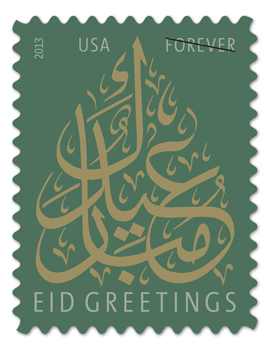Ramadan 101
Ramadan is the month of fasting for all the Muslims who are followers of Islam. Ramadan is the ninth month of Islamic calendar and is the month of devotion of self to Allah. Muslims believe that during this month they must indulge themselves praying to Allah and concentrating less on their daily work schedules. Ramadan involves visiting mosque and praying. The prayers recited by Muslims on the occasion of Ramadan is said to be the Ramadan dua. During Ramadan Muslims have meals twice a day. One meal before the sunrise called suhoor and one meal after the sunset called Iftar. Muslims recite a dua before having their suhoor and Iftar meals.
Fasting is obligatory
From Fiqh-us-Sunnah (volume 3, # 108a)
The fast of Ramadan, according to the Qur’an, sunnah and consensus, is obligatory.
The evidence from the Qur’an consists of the following two verses: “O you who believe, fasting is prescribed for you as it was prescribed for the people before you in order for you to gain God consciousness, and, “…The month of Ramadan, during which the Qur’an was revealed, a guidance for mankind, and clear proofs of the guidance and the criterion; and whoever of you is resident, let him fast the month” [al-Baqarah 185].
From the sunnah we have the following statements of the Prophet: “Islam is built upon [the following] five pillars: testifying that there is no God except Allah and that Muhammad is His Messenger, the establishment of the prayer, the giving of zakah, the fast of Ramadan and the pilgrimage to Makkah.” Talhah ibn ‘Ubaidullah reported that a man came to the Prophet and said: “O Messenger of Allah, tell me what Allah requires of me as regards fasting.” He answered, “The month of Ramadan.” The man asked: “Is there any other [fast]?” The Prophet answered: “No, unless you do so voluntarily.”
Virtues and Benefits of Fasting
From Fiqh-us-Sunnah (volume 3, #109)
Abu Hurairah reported that the Prophet, upon whom be peace, said: “The blessed month has come to you. Allah has made fasting during it obligatory upon you. During it, the gates to Paradise are opened and the gates to hellfire are locked, and the devils are chained. There is a night [during this month] which is better than a thousand months. Whoever is deprived of its good is really deprived [of something great].” This is related by Ahmad, an-Nasa’i, and al-Baihaqi.
Muslim relates that Abu Hurairah reported the Prophet saying: “The time between the five prayers, two consecutive Friday prayers, and two consecutive Ramadans are expiations for all that has happened during that period, provided that one has avoided the grave sins.”
Abu Sa’id al-Khudri reported that the Prophet, upon whom be peace, said: “Whoever fasts the month of Ramadan, obeying all of its limitations and guarding himself against what is forbidden, has in fact atoned for any sins he committed before it.” Ahmad and alBaihaqi related this hadith with a good chain.
Essential elements of fasting: The intention
Source: Fiqh Us Sunnah (volume 3, # 113c)
Allah instructs in the Qur’an: “And they are ordained nothing else than to serve Allah, keeping religion pure for Him.” The Prophet, upon whom be peace, said: “Actions are judged according to the intention behind them, and for everyone is what he intended.”
The intention must be made before fajr and during every night of Ramadan. This point is based on the hadith of Hafsah which reported that the Prophet said: “Whoever does not determine to fast before fajr will have no fast” (that is, it won’t be accepted). This is related by Ahmad, an-Nasa’i, at-Tirmidhi, Abu Dawud, and Ibn Majah. Ibn Khuzaimah and Ibn Hibban have classified it as sahih.
The intention is valid during any part of the night. It need not be spoken, as it is in reality an act of the heart which does not involve the tongue. It will be fulfilled by one’s intention to fast out of obedience to Allah and for seeking His pleasure.
If one eats one’s pre-dawn meal (sahoor) with the intention of fasting and to get closer to Allah by such abstinence, then one has performed the intention. If one determines that one will fast on the next day solely for the sake of Allah, then one has performed the intention even if a pre-dawn meal was not consumed.
According to many of the jurists, the intention for a voluntary fast may be made at any time before any food is consumed. This opinion is based on ‘Aishah’s hadith: “The Prophet came to us one day and said: ‘Do you have any [food]?’ We said, ‘No.’ He said: ‘Therefore, I am fasting.” This is related by Muslim and Abu Dawud.
Fasting and harsh work conditions
Source: Fiqh us Sunnah (Volume 3, 115)
Elderly men and women are permitted to break their fasts, as are the
chronically ill, and those who have to perform difficult jobs under harsh circumstances and who could not find any other way to support themselves. All of these people are allowed to break their fast, because such a practice would place too much hardship on them during any part of the year. They are obliged to feed one poor person [miskin] a day (for every day of fasting that they do not perform).
Commenting on al-Baqarah’s ‘ayah, Sheikh Muhammad ‘Abduh says:
“What is meant by those who can fast’ [(but do not) in the Qur’anic
verse] is the weak elderly people, the chronically ill, and so on, and
similarly, those workers who are working under severe conditions,
such as coal miners. The same applies to criminals who are sentenced
to life imprisonment with hard labor. They have to pay the ‘ransom’ if
they have the means to do so.”
There is also a hadith that states: “Allah has relieved the travelers of
fasting and half of the prayer, and the pregnant and the
breast-feeding women of the fast.”According to the Hanafiyyah, Abu
Ubaid, and Abu Thaur, such women are only to make up the missed
days of fasting, and they are not supposed to feed one poor person a
day. According to Ahmad and ash-Shaf’i, if such women fear only for the baby, they must pay the “ransom” and make up the days later. If they fear only for themselves or for themselves and the baby, then they are only to make up the missed days at a later date.
No less Work in Ramadan:Scholars speak up
Islamonline.net
“There are no teachings that state one should defer work just to break fast,” Zainal Abidin said.
CAIRO — Scholars in Asian Muslim heavyweight Malaysia have rebuffed calls to slash working hours during the holy fasting month of Ramadan, The Star daily reported on Monday, August 6.
“There are no teachings that state one should defer work just to break fast,” said Mohd Asri Zainul Abidin, Mufti of the northern state of Perlis.
Abdul Rahman Osman, deputy mufti of Pahang, Malaysia’s third largest state, agreed.
He said Islam does not advocate a special working mode for Ramadan, expected to start in Malaysia on September 14. [more]
Dua recited by Muslims when the fast begins:
Wa bisawmi ghadinn nawaiytu min shahri Ramadan.
“I intend to keep the fast for tomorrow in the month of Ramadan.”
[Source: Abu Dawud]
It is not prescribed that one says this dua aloud, but rather in his heart because the intention (niyyah) is an action of the heart not by words uttered. So insha’Allah make intention the night before fast.
The Prophet (peace and blessings of Allaah be upon him) said: “Whoever does not intend to fast before dawn, there is no fast for him.” Narrated by al-Tirmidhi, 730
Dua recited by Muslims when they break the fast: Iftar
Allahumma inni laka sumtu wa bika aamantu [wa ‘alayka tawakkaltu] wa ‘ala rizq-ika aftarthu
“O Allah! I fasted for You and I believe in You [and I put my trust in You] and I break my fast with Your sustenance.”
[Source: Abu Dawud]
The dua in the video Muslims say upon seeing the new moon is not just limited to the new moon of Ramadan, but rather whenever one sees a new moon. (more)
Supplication when breaking fast at someone’s house
Compilation of Ramadan duas and more
Ramadan duas in Arabic, English and in transliteration. There are some duas in this clip that are not in the clips above.



















shadaanalam
July 31, 2011
mashallah and shukriya